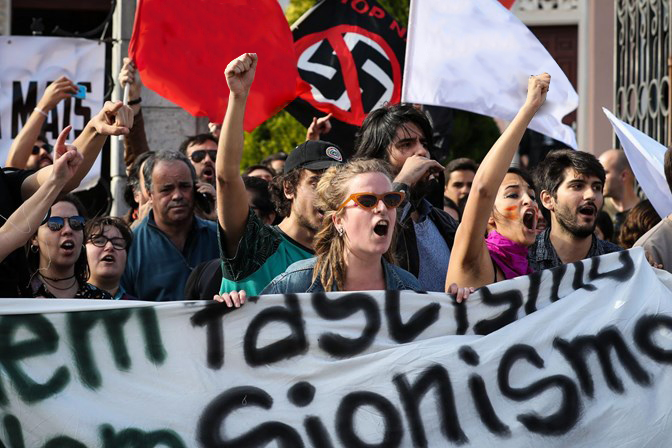Ana Cordeiro Santos, PhD in Philosophy and Economics from the Erasmus University of Rotterdam, The Netherlands, is researcher at the Centre for Social Studies (CES), where she is member of the Science, Economy and Society Research Group (NECES). Her research interests include the topics of financialisation, household indebtedness and housing. She has also worked on the epistemic, social and political implications of economics, namely the role of its recent developments in the construction of markets and other social institutions. Between 2011 and 2014, she has coordinated the project BEHAVE - A Behavioral Approach to Consumer Credit Decision-Making, funded by the Portuguese Foundation for Science and Technology (FCT), and between 2011 and 2016, the Work Package Finance and Well-being of the European FP7 project FESSUD - Financialisation, Economy, Society and Sustainable Development. Currently, she is the PI of the project FINHABIT - Inhabiting in Financial Times: Housing and the Production of Space in Democratic Portugal, funded by FEDER and FCT. She is the author of various national and international scientific publications.
Andrés Spognardi is a researcher at the Centre for Social Studies, integrating the Research Group POSTRADE. He holds a Bachelor's Degree in Political Economy from the University of Mar del Plata (Argentina), a Master's Degree in Cooperative Organisations from the University of Bologna (Italy), and a PhD in Political Science from the Scuola Normale Superiore di Pisa (Italy). He has been research trainee at the Institute for Research on Population and Social Policies (Italy), and visiting scholar at the universities of Columbia (USA) and Valencia (Spain). His research interests lie at the intersection between economic sociology, political sociology, and organisational studies. His current research project, funded by the Foundation for Science and Technology (FCT), aims to explain the divergent evolution of industrial self-management in Portugal and Spain since the time both countries completed their transition to democracy in the mid-1970s.
Beatriz Caitana da Silva is a sociologist and researcher at the Centre for Social Studies (CES) of the University of Coimbra (UC, Portugal). She is currently a member of the scientific coordination of the H2020 project URBiNAT, which focuses on the inclusive urban regeneration of social housing neighbourhoods of 7 European cities through the implementation of nature-based solutions in the public space as a result of a co-creation process involving municipalities and different interest groups in the intervention areas. She is also a member of CES’ study group on solidarity economy (ECOSOL-CES). PhD student at FEUC, her academic research focuses on alternative economies, namely social and solidarity economy, social incubation and co-production initiatives. She is a founder member of the academic social incubator of the Faculty of Economics of the University of Coimbra (FEUC), and visiting professor in social and solidarity economy at the Polytechnic of Leiria (Portugal). Her professional background and areas of expertise also include the coordination of projects for national and international non-for-profit organisations in Brazil, dedicated to children and adolescents' rights, as well as the development of social indicators and tools for the the monitoring and evaluation of public policies for children.
Eber Quiñonez is a PhD candidate at the Faculty of Economics, University of Coimbra (FEUC). He holds a Master’s degree in Social intervention, innovation and entrepreneurship from the same institution. His research interests are: solidarity economy, family farm and small producers, food security and food sovereignty, production and consumption circuits. His current research is focused on short supply circuits which are connected with solidarity economy in Portugal. He was granted by Ford Foundation’s International Fellowship Program. He is member of the study group on Solidarity Economy at CES (ECOSOL-CES).
Isabelle Hillenkamp is a socio-economist, researcher at the Research Institute for Development (IRD, France) and member of the Centre for Social Sciences Studies on the African, American and Asian Worlds (CESSMA, Paris). Based on qualitative surveys, her research focuses on the popular and Solidarity Economy from a socio-economic perspective, attentive to the links between economic practices and social relations. She has conducted research in Mexico, Bolivia and Brazil. Since 2014, she has been developing research in partnership with the feminist, Solidarity Economy and agroecology movements in Brazil. She holds a PhD in development studies from the Graduate Institute of International and Development Studies (IHEID) in Geneva, Switzerland.
Jean-Louis Laville is research director at the Collège d'Etudes Mondiales of Paris and professor in the chair “Economie Solidaire” in CNAM, researcher in LISE (CNAM-CNRS) and IFRIS. He is member of the Board of Directors of the Karl Polanyi Institute of Political Economy, a founding member and member of the Board of Directors of the EMES International Research Network and founding member of the Latin American Researchers Network on Social and Solidarity Economy (RILESS). Author in 1994 of "Economie solidaire: une perspective international", where was laid the foundations of his perspective on Solidarity Economy, he is regularly invited by universities and research laboratories around the world, such as the CRIDIS at the University of Louvain and the CRISES, Montréal. He is the editor the collections Sociologie Economique, Solidarité et Société and Poiesis & Praxis.
Jordi Estivill is Emeritus Professor of Social Policy at the University of Barcelona and a former Director of the Office of Social Studies of Barcelona (1984-2002). Coordinator of numerous research projects and author of numerous publications, he is the director of the editorial line Politicas Europeas of HACER. He is a specialist in social policies and Solidarity Economy, having been a founding member of the Catalonian Network for Solidarity Economy and an international adviser to the Poverty and Social Exclusion Observatories of Catalonia, Budapest, and Lisbon. Being a visiting professor at several universities, he was awarded the prize for the best professional trajectory in the social field conferred by the government of Catalonia (2010).
Lars Hulgård is a sociologist and holds a PhD in Public Administration. He is Professor at the University of Roskilde (RUC), Denmark, where he founded the Center for Social Entrepreneurship in 2006 and leads the research group in Social Innovation and Organisational Learning, as well as a Master's Degree in Social Entrepreneurship and Management. He researches, teaches and publishes on the themes of social innovation, social work, social entrepreneurship, social enterprises, and co-production in social service. He was Visiting Professor at the Universities of Harvard (2004), California (1998) and Mannheim (1992) and president of the Sociological Association of Denmark. He is currently a member of the Board of Directors of the EMES Network, of which he was President between 2010 and 2015 and a founding member.
Luciane Lucas dos Santos is a researcher at the Centre for Social Studies, University of Coimbra, integrating and co-coordinating the Research Group on Democracy, Citizenship and Law (DECIDe) as well as the Study Group on Solidarity Economy (ECOSOL-CES). She holds a PhD in Communication and Culture from the Federal University of Rio de Janeiro (2004) and a Master's Degree from the same institution (1999). She worked as senior lecturer and researcher at the State University of Rio de Janeiro (UERJ/Brazil), having consolidated a long academic career there. She has moved to Sociology for 15 years, working on consumption studies, Economic Sociology, and Feminist Economics. Her main research and lecturing interests are: Feminist Economics, Feminist Aesthetics, postcolonial feminisms, postcolonial and decolonial studies on consumption and Economics, poverty and social inequalities from an interseccional perspective, Global South within Europe.
Marilia Verissimo Veronese holds a PhD in Social Psychology from the Pontifícia Universidade Católica do Rio Grande do Sul (Brazil). She is a professor and researcher at a programme of postgraduate studies on Social Sciences, Universidade do Vale do Rio dos Sinos (UNISINOS). She has been a postdoctoral fellow at the Centre for Social Studies, University of Coimbra. Her research is focused on the issues of subjectivities and self-management, Solidarity Economy, mental health and psychosocial suffering, inequalities and collective life in periferal communities.
Michela Giovannini is a Marie Sklodowska Curie fellow at the CES, integrating the research group POSTRADE and its sub-group ECOSOL-CES. She holds a PhD in Local Development and Global Dynamics at the University of Trento, Italy (2014) and a Laurea in Political Science (University of Padova, 2001). Her main studies focused on social and Solidarity Economy organisations in Latin America, such as indigenous grassroots initiatives in Mexico and their contribution to buen vivir, and recyclers' organisations in Chile. Her current research project is devoted to analyse the political dimension of social and Solidarity Economy organisations connected to anti-austerity social movements in Spain and Portugal. Her research interests focus on social and Solidarity Economy in Latin America and Europe, indigenous socioeconomic initiatives, community development, anti-austerity social movements.
Nathalie Nunes is researcher at CES and currently member of the co-coordination team of URBiNAT (H2020 project). She is graduate in International and European Law (University of Paris Nanterre, France), and holds a professional master's degree in International Careers (University of Auvergne-Clermont 1, France), as well as a research master's degree in International and European Law of fundamental rights (University of Nantes, France). PhD candidate in sociology of law at the University of Coimbra (Portugal), her thesis project is on the 2005 urban uprisings in the French suburbs. She got international experience in Cape Verde as a trainee for the French Embassy, and as a project assistant for UNICEF. In Brazil, from 2004 to 2010, she worked in several sectors, namely in a law firm, in a communication agency specialised in sustainability, and some NGOs. In both France and Brazil, she collaborated as a professional and volunteer with organisations, by promoting and defending human rights, children's rights and the environment. From 2011 to 2015, she was partner of an online communication agency. Most recently she was head of development at the International Federation for Human Rights (FIDH) in Paris.
Nathalie Vallet studied Applied Economics at the University of Antwerp (1985-1989) and finalised her PhD at the University of Nijenrode in the Netherlands (2001). At present she teaches on Management, Organisation Management and Strategic Management within several academic (bachelor/master) and post-academic programs of the University of Antwerp. Her major research interest focuses on strategic management and strategy implementation in the public sector. During the last 13 years she has was involved in several policy-related research projects from different types of organisations such as local governments, cities, higher education institutions, police organisations, penitentiary institutions, social economy organisations and public libraries. Finally, she is also specialised in qualitative research methods (Grounded Theory).
Pedro Hespanha holds a PhD in Sociology from the University of Coimbra (1990) and he is a retired professor at the Faculty of Economics in the same University. Founding member of the Centre for Social Studies (CES), he co-coordinates the Study Group on Solidarity Economy (ECOSOL-CES) since 2008. He has been visiting researcher at the University of Wisconsin-Madison (USA) and visiting professor at the Universities of Rio Grande do Sul (Brazil), Växjö (Sweden), Agostinho Neto (Angola) and Andalusia (Spain). He has researched, published and lectured in the areas of rural sociology, social policy, health and disability studies and, more recently, popular and solidarity economy. He was President of the Directive Board of the Faculty of Economics of Coimbra between 2002 and 2004, President of the Scientific Board of CES between 2010 and 2013 and member of the General Council of the University of Coimbra between 2012 and 2016.
Rogério Roque Amaro is Economist, PhD from the Université des Sciences Sociales II of Grenoble. Associate Professor of ISCTE (Department of Political Economy), he teaches in the fields of Development and Social and Solidarity Economy. He is founder of RedPES - Portuguese Network of Solidarity Economy - as well as founding partner and Scientific Committee President at the Centre for Studies on the Atlantic Solidarity Economy (ACEESA, Ponta Delgada). He is also the director of ACEESA’s journal. He currently belongs to the Advisory Board of RIPESS - Intercontinental Network for the Promotion of the Social and Solidarity Economy and also to RIUESS - Inter-University Network of Social and Solidarity Economy. He is a member of the Installing Commission of the Lusophone Network for Development and Social and Solidarity Economy.
Sílvia Ferreira holds a PhD in Sociology from the University of Lancaster (UK) and is a professor at the Faculty of Economics of the University of Coimbra, where she coordinates the graduation in Sociology as well as the PhD in Sociology and a Post-Graduation Course in Social Economy. She is a researcher at the Centre for Social Studies and at the Centre for Cooperative Studies and Social Economy. She is a member of the Board of Directors of EMES – an International Research Network. Her research has focused on: the third sector and social policies, social entrepreneurship and social innovation in the social and Solidarity Economy, volunteering, social economy and the crisis in Portugal and governance through local state / third sector partnerships


